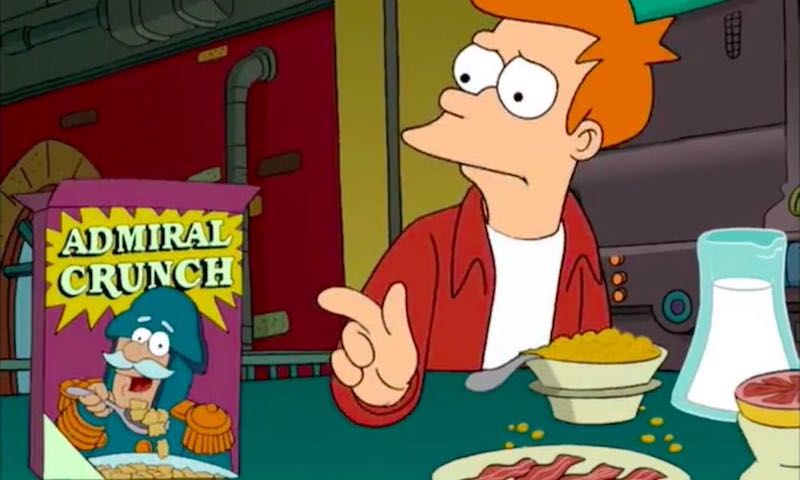“Don’t forget to eat your breakfast Jimmy—it’s the most important meal of the day!”
— Well meaning Mother
Well meaning, but wrong. But who could blame her?
Anyone growing up from the 1960s to the 1980s who watched Saturday morning cartoons saw countless advertisements that emphasized the importance of breakfast.
Animated characters and jingles of all sorts taught kids not to head off to school before eating something. Otherwise they wouldn’t have any energy. They wouldn’t be able to focus. What they needed, was a “balanced breakfast”.
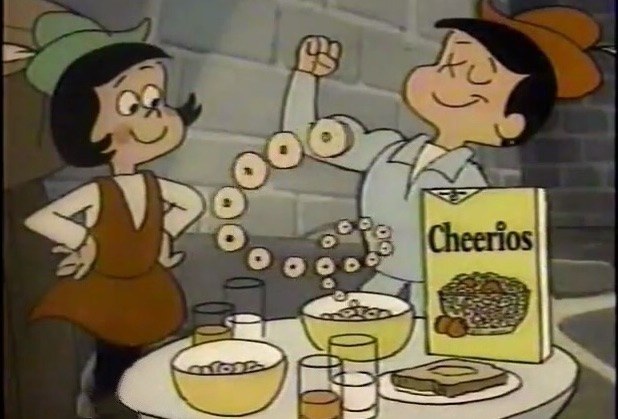
General Mill’s Cheerios: “Energy O’s that help you grow”
According to the TV a “balanced breakfast” may include: Cheerios, Cocoa Puffs, Lucky Charms, Trix, and/or Frosted Flakes.
These cereals battled it out to get into the cupboards of as many families as possible. Little Jimmy’s eating habits depended on which cereal had the coolest cartoon character, or the catchiest jingle.
But no matter which cereal won the battle, breakfast won the war.
It was a brutally effective strategy. How often have you heard that “Breakfast is the most important meal of the day”? It’s parroted to us so often that it is almost blasphemous to say otherwise.
Well it turns out that cereal companies may have had other motives when they crowned breakfast as the king of all meals.
Intermittent fasting points out that the noble Emperor Froot Loops III isn’t wearing any clothes.

Kellog’s Apple Jacks: “A bowl a day gives you energy to play”
When you intermittently fast, you restrict your eating to a pre-defined period of the day.
This generally involves skipping your morning breakfast.
Why Should I Intermittent Fast?
Well first off: why do you eat when you eat right now? Have you ever actually thought about it?
You probably adopted the eating habits of your parents, who adopted the eating habits of their parents. But don’t blame Nanna—she was just following everyone else.
People tend to reinforce each other’s beliefs in self-perpetuating loops. Each round of mutual confirmation tightens our beliefs further. Until we have little choice but to believe what everyone else believes: “Breakfast is the most important meal of the day”.
So have we always eaten in the mornings? Did we evolve with an around-the-clock buffet, eating 5+ times per day?
No—we evolved with elongated periods of fasting and feeding.
Food was eaten when it was available. If you didn’t kill anything until 2pm, then you fasted until 2pm.
This begs the question—how did we manage to kill anything without any energy or focus?
From a survival perspective, a lack of food warrants an increased level of concentration. We need to stay focused if we want to catch our next meal.
And this focus is exactly what you experience while fasting.
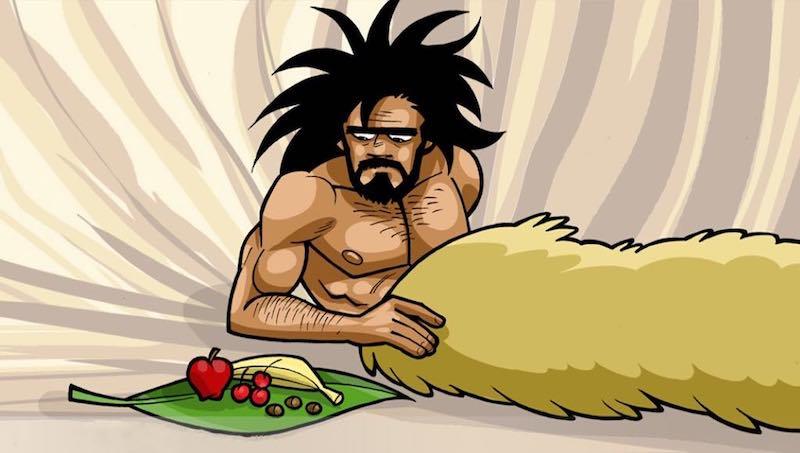
God Dammit Mum, I said I wanted Cheerios
“But every time I skip breakfast I’m starving – I can’t concentrate!”
I was the exact same. Worse than that – I would eat a big breakfast and be famished by 11am. Before I skipped breakfast, I tried everything to make it more satiating.
- I was told oats were filling, so I ate oats in the mornings. Hungry at 11am.
- I was told fruit was filling, so I added fruit to my oats. Hungry at 11am.
- I was told protein was filling, so I added an egg to my oats (this tastes way better than it sounds). Hungry at 11am.
- I was told almonds were filling... you see the trend?
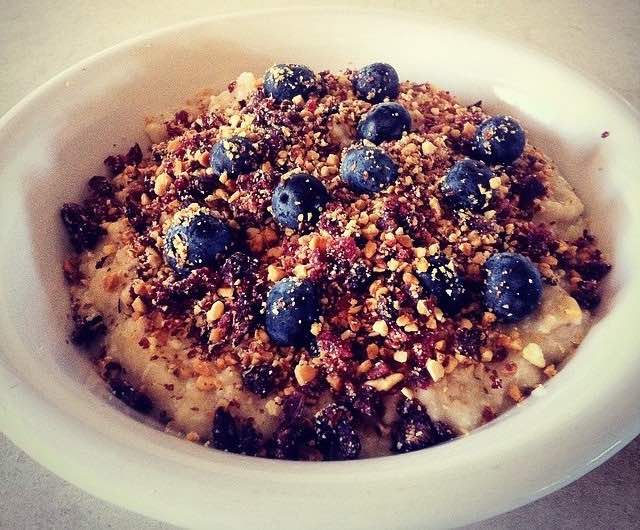
Delicious breakfast. Still hungry at 11am.
I stumbled upon intermittent fasting in search of a better morning.
I was sick of the time lost making and eating breakfast. I was sick of the ups and downs in concentration. And most of all, I was sick of the hunger pangs.
So when I heard that I could lose weight, save time, and increase my concentration via skipping breakfast, I was as skeptical as you. But I was willing to give it a shot, since my current eating habits clearly weren’t working.
“...when I heard that I could lose weight, save time, and increase my concentration via skipping breakfast, I was as skeptical as you.”
And oh boy was I hungry... for the first week. That’s roughly how long it will take for your hunger hormones to adjust to your new eating routine. After that, pure bliss. Now I enjoy more time, more focus, but no more hunger.
I’ve been intermittent fasting for over 4 years now, and I can’t see myself turning back. It’s amazing what a huge difference such a simple change can make.
It’s been the best single decision I’ve ever made for my diet and productivity.
If you’re on the fence about trying it, I highly recommend giving it a shot.
How Do I Intermittent Fast?
Intermittent fasting divides your day into two periods. A fasting period, and a feeding period. The feeding period is also called an “eating window”.
No one is eating 24 hrs/day, so we are all fasting and feeding already.
But since we aren’t feeding with a plan in mind, we end up with too large an eating window. Plan “Eat Whenever My Tummy Grumbles” doesn’t count as a plan.
Although we generally stop eating at around 9pm, if your stomach growls at 11pm you might pop back into the kitchen for a snack.
We usually eat breakfast at 8am, but you’re starving this morning. So you have it a little earlier at 7am.
So we fast from our last scoop of ice cream at night to our first spoonful of cereal in the morning. This results in most people fasting for less than 12 hours, which is not ideal.
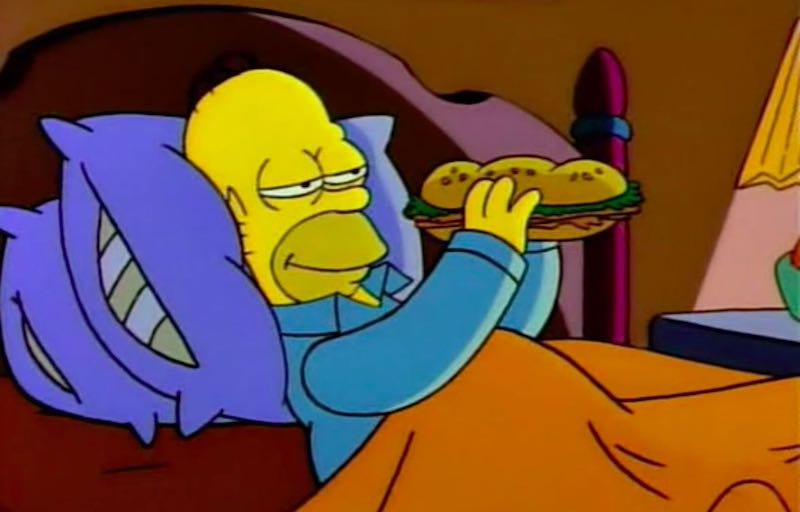
Just a nibble?
There are various fasting and feeding routines. A common and effective routine is an eating window from 12pm to 8pm each day (made popular as the leangains routine).
Under this routine you don’t start consuming any solid or liquid calories until 12pm, and you stop no later than 8pm.
This has myriad benefits compared to some alternate routines.
What are the Benefits of Intermittent Fasting?
First off, the consistent eating window regulates your hunger hormones. The reason your stomach rumbles at 8am is because your body is used to eating at 8am. It’s expecting food.
At your regular breakfast time, your body releases a bunch of hunger hormones (most notably one called ghrelin) and widens your stomach in preparation for food. This makes you hungry.
Now if you start eating at 12pm, your body adapts to your new eating habits. Your hunger will now develop at 12pm, not 8am. And just like that: no more morning hunger.
Similar biological mechanisms means you’ll no longer be tempted to snack at night. If you consistently cut off your eating by 8pm, your body will no longer expect food past 8pm.
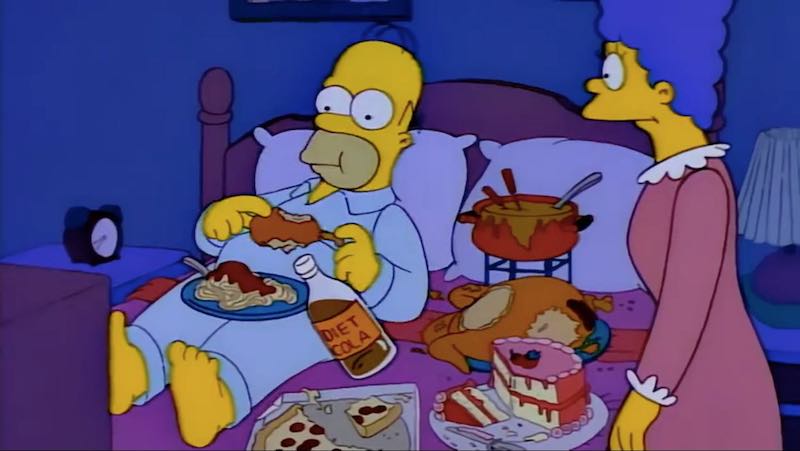
No more midnight snacks
It gets better. When you have less time to eat, you eat less.
You might suspect that you’ll binge after not eating for so long. And while you might initially break fast with a larger meal, overall most people end up eating less for the day
This is especially true if you’re eating satiating foods. There just isn’t enough time for your fullness to subside.
Granted you can still go into a calorie surplus if you go overboard. If you only eat high calorie junk then you will still gain weight (but even then, it’s harder to do).
The fixed eating window is a one-two punch on weight loss.
The left punch stops you snacking throughout the day.
The right punch doesn’t give you time to regain your hunger.
Before you know it, your hunger is knocked out cold. Weight loss becomes a breeze.
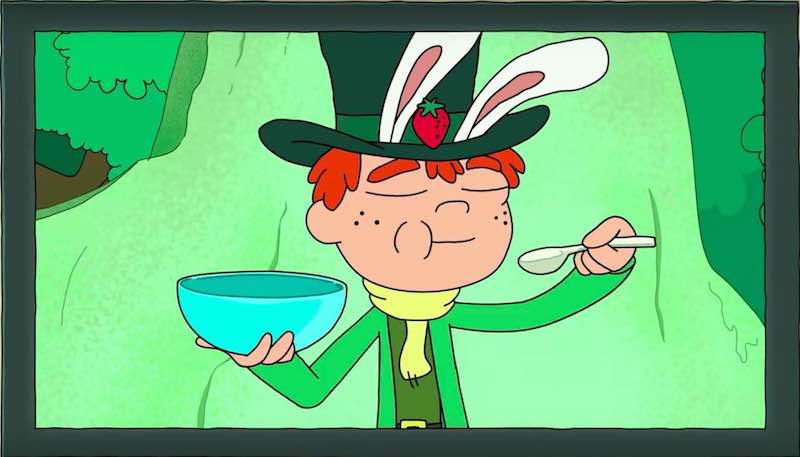
No longer tempted by strawberry smiggles
So intermittent fasting helps you:
- Get rid of your morning hunger
- Improve your concentration
- Save time
- Eat less
There is also emerging evidence that fasting can help you live longer. Intermittent fasting and longevity will be explored more in another post.
If you’re currently fit, healthy, have plenty of spare time, and have no trouble staying focused, then keep on doing what you’re doing.
But if you want to improve in any of these areas, then consider intermittent fasting.
